Quine's Naturalism
Interview by Richard Marshall.
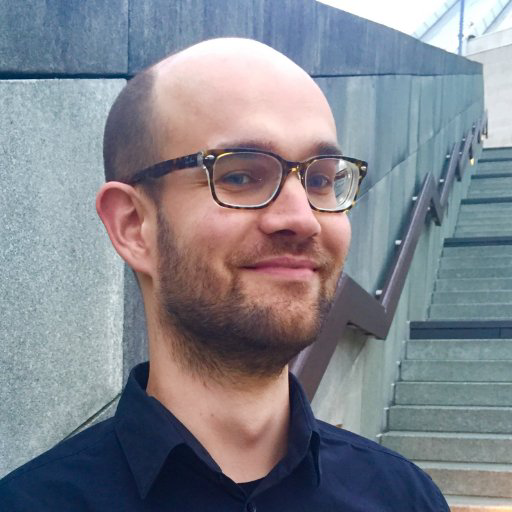
'Historically, philosophical naturalism has often been defined in opposition to ‘supernaturalism’. Where supernaturalists believe that at least some phenomena require ‘supernatural’ explanations, e.g. we need god(s) to explain the origin of the universe; we cannot explain consciousness without introducing souls or Cartesian minds, naturalists defend a picture of reality in which man, mind, and morality are conceived of as natural phenomena.'
'Because much of the historiography of twentieth-century analytic philosophy is focused on the Carnap-Quine debate, people tend to forget that the two basically shared the same perspective on philosophy. I believe it is historically more accurate to claim that Carnap and Quine, in their discussions about analyticity, ontology, and the nature of logic and mathematics, were only disagreeing about the details.'
'Quine has always been puzzled by the nature of epistemology. In the archives, I found a bunch of notes for a book he was writing when he was working in the Navy during the Second World War. Quine never completed the book, partly because he could not come up with a satisfying solution to the problem of how to square his naturalism with a satisfying epistemology.'
'Considering that we are only directly acquainted with sense data, the phenomenalist asks, aren’t we obliged to show that our best scientific theories can be derived from primary sense experiences if we want to be sure that those theories are truly justified? Quine’s principal move against the phenomenalist (an argument he first developed in the years between “Two Dogmas” and Word and Object) is to deny the presupposition that we are directly acquainted with sense data in the first place.'
' Quine’s arguments against traditional epistemology and traditional metaphysics are cut from the same cloth. Quine dismisses questions about whether electrons, bacteria, and chromosomes really exist, because our very notion of ‘reality’ is itself a scientific notion.'
'When you adopt a Quinean picture, it is still perfectly possible to do metaphysics, epistemology, or philosophy of language. Quine only teaches philosophers that they should be more humble. Our theories about the world are fallible; it is always possible that we will one day discover that our most fundamental theories are largely incorrect. '
'Between 1930 and 1967, Quine did not hesitate to identify himself as a behaviorist (although his views were very different from those of Skinner). After 1967, however, Quine starts to be more careful in his use of the term.'
'Although Quine himself has always maintained that his project can “be pursued at one or more removes from the laboratory, at one or another level of speculativity” (both quotes are from The Roots of Reference), I believe he does not have any good arguments to support his approach.'
Sander Verhaegh is an Assistant Professor at the Tilburg Center for Logic, Ethics and Philosophy of Science (TiLPS) at Tilburg University in the Netherlands. His research focuses on the history of analytic philosophy (especially Quine and the Vienna Circle), the history of psychology, and the philosophy of psychology. Here he discusses Quine's naturalism, the naturalistic turn, Quine and epistemology, Quine and traditional metaphysics, Quine's best arguments for naturalism, his deflationary views about truth, reality, justification and meaning, the analytic-synthetic distinction, his attitude to behaviorism, philosophy's relationship with science, whether there's a naturalistic justification for naturalism, and Quine's legacies.
3:AM: What made you become a philosopher?
Sander Verhaegh: I remember reading a comic book based on one of the Sherlock Holmes novels when I was about fourteen or fifteen. Holmes, as always, was trying to solve a case and in this particular investigation he needed some information from a philosophy professor, who was sitting in a large leather armchair in the university library (as philosophers tend to do). Sherlock tried to ask the professor some questions, I don’t remember the exact details, but he completely failed to get the information he needed. Instead of answering Sherlock’s questions, the philosopher kept rambling on about triangles, a priori knowledge, and Plato’s theory of Forms.
The cartoonist probably did not intend this to be an advertisement for philosophy but I remember thinking “Wow, is that a thing? Do people actually do that for a living?” Soon after, I started reading some introductions to philosophy (first Jostein Gaarder’s Sophie’s World, somewhat later Bertrand Russell’s A History of Western Philosophy). I was immediately hooked and I decided to study philosophy. A few years later, when I discovered that you need to do a Ph.D. before you can become a philosopher, I decided that’s what I wanted to do. After a BA in Nijmegen, I moved to Groningen to specialize in analytic philosophy (especially philosophy of mathematics). I was particularly impressed by Penelope Maddy’s Naturalism in Mathematics, so when I had to apply for a Ph.D. scholarship I wrote a proposal about naturalism in the philosophy of mathematics. Kind of ironic, now I think of it, as the naturalistic approach is diametrically opposed to the armchair theorizing that had appealed to me so much when I first learned about philosophy.
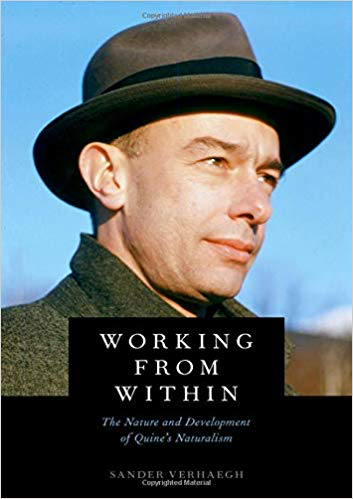
3:AM: Quine and naturalism is your big interest. Quine belongs in a tradition that includes Nietzsche, Marx, Hume, Dewey, Sellars, Santayana I guess, so what are we to understand by philosophical naturalism generally?
SV:Historically, philosophical naturalism has often been defined in opposition to ‘supernaturalism’. Where supernaturalists believe that at least some phenomena require ‘supernatural’ explanations, e.g. we need god(s) to explain the origin of the universe; we cannot explain consciousness without introducing souls or Cartesian minds, naturalists defend a picture of reality in which man, mind, and morality are conceived of as natural phenomena. In contemporary terms, you could say that naturalists dismiss the view that some phenomena require a suprascientific explanation, that is, they reject the view that some of our questions about the workings of the world cannot be solved using the empirical methods that are most commonly used in the sciences (broadly construed).
Like most ‘isms’, however, naturalism is a complex, multidimensional concept and therefore notoriously hard to define. It is almost a cliché to claim that there are as many variants of naturalism as there are naturalists. Some forms of naturalism are excessively strong and reductionistic (e.g. ‘every theory that cannot be reduced to our current best physical theories must be false’); other variants are so modest that virtually no contemporary philosopher would disagree (e.g. ‘our philosophical worldview should at the very least take into account what our best scientific theories have to say about the nature of reality’). Likewise, some types of naturalism are phrased as metaphysical claims (‘reality is exhausted by nature as it is studied by the sciences’) whereas other types of naturalism are primarily focused on epistemology or methodology (‘we can only acquire knowledge about a particular phenomenon if we study it using the empirical methods that have also been successful in the sciences’).
I find Quine’s variant of naturalism fascinating because he is not particularly interested in these big, often very polarized, debates between naturalists and supernaturalists. Rather, he pretty much assumes that these debates have been settled and he seeks to advance our scientific worldview by showing that a truly naturalistic picture of reality also requires that we radically rethink our philosophical views about truth, justification, mind, reference, and meaning. In short, Quine argues that traditional philosophical disciplines like metaphysics, epistemology, and the philosophy of language need to be naturalized as well. I believe this also explains why Quine can be regarded as a ‘philosopher’s philosopher’, i.e. why Quine is not widely known outside philosophical circles despite the fact that many contemporary philosophers consider him to be the most influential postwar Anglophone philosopher. Where debates about naturalism in the public arena are still largely concerned with questions about science and religion, Quine largely ignored these discussions and focused on improving the naturalistic worldview by updating our traditional philosophical ideas about mind, language, and reality. In my book, I reconstruct the nature and the development of Quine’s naturalism by studying the great wealth of notes, letters, draft manuscripts, lectures, and teaching materials that have been saved at the Quine archives at Harvard.
3:AM: Brian Leiter talks about a ‘naturalistic turn’ in contemporary philosophy. What is it about the distinction between science and philosophy that explains the revolutionary character of this naturalistic turn?
SV: Traditionally, philosophy has often been viewed as a foundational discipline. Epistemologists try to figure out whether our best scientific theories are trulyjustified, whether it is possible to acquire knowledge about the world in the first place, and metaphysicians try to determine whether the objects posited by those theories really exist. Even if scientists were to develop a comprehensive, perfectly successful, theory of reality, foundationalists claim, philosophers still need to establish to what extent our these theories are an accurate description of what the world is really like.
Quine has always identified himself as a member of an international movement of empiricist philosophers. In 1932, just after he obtained his Ph.D., Quine spent a year in Europe to learn from what he regarded to be the leading ‘scientific philosophers’: Schlick’s circle in Vienna, Carnap in Prague, and the Polish logicians in Warsaw. Later, he helped many of these philosophers to get a position in the US, and played a role in the Unity of Science Movement. Many of these ‘scientific philosophers’ dismissed the traditional philosophers’ foundationalist projects and sought to reconceive philosophy as a scientific enterprise. Carnap, for instance, argued that philosophy should become a “properly scientific field, where all work is done according to strict scientific methods and not by means of ‘higher’ or ‘deeper’ insights”. Philosophers, Carnap believed, should study the logic ofscience.
Some of the documents I found in the archives show that Quine’s first meetings with Carnap had a tremendous impact on his metaphilosophical development. In a report to the people who funded his fellowship, for example, Quine writes that Carnap helped him to find “the most satisfactory answer” to the “perplexing question of the nature of philosophy”. Because much of the historiography of twentieth-century analytic philosophy is focused on the Carnap-Quine debate, people tend to forget that the two basically shared the same perspective on philosophy. I believe it is historically more accurate to claim that Carnap and Quine, in their discussions about analyticity, ontology, and the nature of logic and mathematics, were only disagreeing about the details. As Gary Ebbs has recently argued, Quine was just trying to be “more Carnapian than Carnap”; he was trying to improve the empiricist tradition from within.
Having said that, the Carnap-Quine debate has been tremendously important from a metaphilosophical point of view as well. For although philosophers like Carnap aimed to view philosophy as ‘properly scientific field’, most of them still presupposed a relatively strict science-philosophy distinction i.e. they still defended the antipsychologistic view that “the psychological is to be sharply separated from the logical” (as Frege and Wittgenstein held). Indeed, it is perfectly possible to study the ‘logic of science’ without ever taking into account what scientists are actually discovering about the nature of mind, language, and reality. The question whether a given set of observations confirms a particular hypothesis, for example, can be answered without us knowing anything about whether scientists actually judge the hypothesis to be confirmed, or so the antipsychologist argues.
It is therefore telling that the first draft of Quine’s seminal “Epistemology Naturalized” was titled “Epistemology Naturalized; or, the Case for Psychologism”. Quine viewed himself as out-Carnaping Carnap in showing that there is no need to maintain a strict distinction between science and philosophy. And although the jury is still out concerning the question to what extent Carnap was actually presupposing such a strict science-philosophy distinction, it is Quine’s rejection of this distinction that has led to what Leiter calls the naturalistic turn. Today, that is, many philosophers maintain that philosophy is continuous with science, that they are participants in the scientific enterprise at large. Indeed, Leiter’s claim is supported by Bourget and Chalmers’ recent survey among 931 leading philosophers: 49,8% of the philosophers who completed the survey described themselves as naturalists in metaphilosophy, whereas only 25,9% of the respondents claimed to reject naturalism.
3:AM: This was in the 1960s wasn’t it – but didn’t Quine start working on this in the 40’s? What was the issue that stopped him from making the breakthrough he later made?
SV: Quine has always been puzzled by the nature of epistemology. In the archives, I found a bunch of notes for a book he was writing when he was working in the Navy during the Second World War. Quine never completed the book, partly because he could not come up with a satisfying solution to the problem of how to square his naturalism with a satisfying epistemology. He worried that epistemologists could easily dismiss his scientific philosophy by claiming that our best scientific theories are nothing more than constructions of sense data. You can defend an ontology that includes electrons, bacteria, and chromosomes but if your scientific theories are ultimately based on sense data, doesn’t that mean that those primary sense experiences are epistemologically more ‘real’ than the electrons, bacteria, and chromosomes you hold so dearly? Quine’s notes and letters from this period show the he was severely struggling with this problem. Indeed, when the Rockefeller Foundation asked him to list the most urgent questions in philosophy in 1946, Quine responded by listing it as one of the most pressing issues (next to the question of how to make sense of the distinction between analytic and synthetic judgments).
Quine’s views did not immediately change after he published “Two Dogmas of Empiricism”. Many scholars make the mistake of reading too much of Quine’s mature views back into “Two Dogmas”. Quine himself, however, was largely dissatisfied with the ‘holistic empiricism’ he sketched in the famous sixth section of that paper. He believed that his holism did not live up to the strict empirical standards he demanded of Carnap’s notion of analyticity in the first part of the paper. His holism was as much in need of empirical clarification as the Carnapian view it was supposed to replace. Furthermore, Quine did not immediately see that his views entailed that philosophy (and hence epistemology) is more like science than philosophers used to think. Rather, he drew the converse conclusion that science is more like philosophy than his empiricist friends believed. This is why Quine ends “Two Dogmas” with the claim that he is espousing “a more thorough pragmatism” than Carnap and this is also why he often used the term “pragmatism” to describe his views in this period of his career. Only in the late 1950s, when he was writing Word and Object, Quine realized that his views entail that scientific results are relevant to philosophical questions and hence that he could solve some of the problems of epistemology by enlisting the aid of natural linguistics and psychology. It is also after “Two Dogmas” that Quine found a satisfying answer to sense data objection he struggled with in the 1940s.
3:AM: Can you sketch for us his arguments against a traditional epistemology and the idea of a ‘first philosophy’ – which are the best arguments and are you convinced by them?
SV: Much of the confusion about Quine’s naturalized epistemology is caused by the way in which he introduces his ideas in “Epistemology Naturalized”, probably his most influential paper after “Two Dogmas”. One should realize, however, that “Epistemology Naturalized” was a public lecture and that one of the goals of the lecture was to reflect on the distinction between his then current views and the views of Carnap. Quine gave the lecture in Vienna and he chose this topic because it was the first time he visited Vienna since his trip to Europe in 1932. Indeed, in an unpublished pre-amble, Quine argues that it is one of his aims “to reflect on the differences between [his] present point of view and the Old Viennese philosophy” he had encountered 35 years before. The paper would have been clearer, however, if he had either focused on his arguments against Carnap or on his arguments against first philosophy. “Epistemology Naturalized” is an awkward mix between the two, I argue in my book, for Quine never considered Carnap to be a first philosopher.
In most of his work on epistemology before and after “Epistemology Naturalized”, Quine’s argument is much clearer. In those papers, Quine is almost exclusively concerned with the phenomenalistic variant of first philosophy I mentioned in response to your last question. Considering that we are only directly acquainted with sense data, the phenomenalist asks, aren’t we obliged to show that our best scientific theories can be derived from primary sense experiences if we want to be sure that those theories are truly justified? Quine’s principal move against the phenomenalist (an argument he first developed in the years between “Two Dogmas” and Word and Object) is to deny the presupposition that we are directly acquainted with sense data in the first place. Sense data, Quine came to realize, are just as much theoretical posits as the electrons, bacteria, and chromosomes we supposedly construct from them. We do not see ‘patches of green, brown, and grey’ when we are walking through a forest; we see trees, logs, and squirrels. This is why it requires severe training to teach amateur painters to reproduce their everyday three-dimensional view of the world on a two-dimensional canvas. Similarly, anyone with experience teaching sense data theory to first-year philosophy students will recognize that one has to appeal to quite a bit of factual knowledge if one wants to show them why some philosophers built their epistemology on sense data; one has to show, for example, that a coin will appear to be shaped and colored differently when one looks at it from different angles and in different lighting conditions.
Traditional epistemology builds on the idea that sense data are epistemologically more fundamental than our scientific theories. This is why a reduction of science to sense data would constitute a major epistemological achievement. Quine, however, became convinced that sense data are not fundamental at all. The sense-datum language is not epistemologically prior tobut dependent onour best scientific theories. And if sense data are dependent on our best scientific theories, why should we continue to worry about the question whether we can derive our scientific theories from sense data?
Quine makes a similar move against the Cartesian sceptic. The sceptic presupposes that she can question our knowledge about the world by invoking perceptual illusions or thought experiments. Quine, however, argues that these illusions and thought experiments, too, only make sense against the background of a comprehensive body of accepted knowledge. Sceptical arguments that are based on the fact that our senses are unreliable, for example, presuppose knowledge about the world. The picture of the ‘black and blue’ or ‘white and gold’ dress is only puzzling because we know that we typically do not disagree about the colors of objects. Likewise, we can only question the reality of quarks and leptons because we typically agree about what is real and what is not (e.g. elephants, Sri Lanka, and gravity are real; unicorns, Narnia, and The Force are not). Questioning the reality of everything all at once, however, does not make sense because, Quine claims, in doing so we dissociate the term ‘reality’ “from the very applications which originally did most to invest” this term “with whatever intelligibility” it may have for us.
On a general level one could say that Quine, in both his argument against the phenomenalist and in his argument against the sceptic, denies that it is possible to transcend our existing theory of the world. The sceptic presupposes that she can challenge everything we know without presupposing any knowledge herself, whereas the phenomenalist presupposes that she can answer this challenge by justifying our knowledge about the world on some theory-independent sensory language. In both cases, Quine dismisses these presuppositions by denying that there is any such theory-independent perspective.
3:AM: Why was he against traditional metaphysics? Did he actually agree with Carnap that metaphysical claims were meaningless when he argues that metaphysical existence claims ought to be dismissed or is he a little muddled in this area about exactly what he thinks – or is it that he doesn’t think we can ask what reality is like in a distinctively philosophical way – thus linking his metaphysical approach with his epistemological?
SV: Quine’s arguments against traditional epistemology and traditional metaphysics are cut from the same cloth. Quine dismisses questions about whether electrons, bacteria, and chromosomes really exist, because our very notion of ‘reality’ is itself a scientific notion. As Quine has argued in a back-and-forth with Davidson: “the term ‘reality’, the term ‘real’, is a scientific term on a par with ‘table’, ‘chair’, ‘electron’, ‘neutrino’, ‘class’ … all these are part of our scientific apparatus, our terminology”. So the traditional metaphysician’s presupposition that she can somehow bracket all our theoretical knowledge and ask whether bacteria really exist, is fundamentally misguided. There is no deeper sense of ‘real’ than our everyday empirical notion of reality.
When it comes to their views about traditionalmetaphysics, in other words, Carnap and Quine are on the same anti-metaphysical team. Still, it would be wrong to conclude that their views about ontology and metaphysics are fundamentally alike. Again, the Carnap-Quine debate is a disagreement about the details. Not only do they disagree about the nature of Carnap’s distinction between internal and external questions, Quine also rejects Carnap’s view about why metaphysical existence claims ought to be dismissed. In a recent paper (published open access here), for example, I show that Quine’s views are more subtle than Carnap. Where Carnap needs a strict, philosophically potent, criterion of significance to get rid of metaphysical existence claims (i.e. to argue that they are meaningless), Quine does not believe that we need such a philosophical criterion; we can simply dismiss metaphysical claims ‘from within’. Or, as he expressed it in a letter to Putnam, “I don’t censor à la Carnap nor demarcate à la Popper”.
3:AM: What are Quine’s best arguments for naturalism? Are they the arguments coming out of his idea of ‘working from within’, taking a science-immanent approach? Can you sketch for us what you take this to mean?
SV:The arguments against traditional epistemology and metaphysics I just sketched are largely negative. They both show that we ought to dismiss first philosophy because we can never completely transcend our best theories of the world. My book is titled Working from Within because I believe that this slogan best summarizes Quine’s positive view. Basically, the idea is that in asking and answering questions about the world, whether they are everyday empirical questions, fundamental scientific questions, or what we used to think of as epistemological and metaphysical questions, we are always relying on our inherited worldview, we are always working from within. According to Quine, this is basically an empirical fact about the nature of inquiry. We always start in the middle, presupposing whatever our parents, our teachers, and our friends have told us about the world when we grew up. Later, we try to clarify, understand, and improve this system from within. In doing so, we can do no better than to rely on our best theories and methods; we can never start from scratch. In one of the notes Quine wrote before he had adopted the term ‘naturalism’, he calls this view ‘immentialism’ and he defines it as the view that we “must work within a growing system to which we are born”. This note, along with four other previously unpublished lectures, notes, and letters are published in the appendix of my book.
I should also say something about the idea that Quine is defending a ‘science-immanent approach’. Quine is sometimes accused of defending an implausibly scientistic worldview. That is, Quinean naturalism is sometimes equated with an excessively restrictive, reductionist variant of physicalism. My reconstruction of Quine’s position, however, implies that this is a mistake. When Quine says that each man ‘is given a scientific heritage’ and that it is his task to improve this heritage from within, he uses the term ‘science’ in an extremely broad way. It includes everything we learn when we grow up. Quinean naturalism, therefore, is not a scientistic thesis. To be sure, in improving, clarifying, and understanding his system from within, Quine sometimes made choices that some contemporary philosophers regard to be unduly restrictive. But these are the choices he made after he had already adopted an immanent perspective. To view Quinean naturalism as a scientistic position, in other words, is to present his position the wrong way around.
3:AM: How does his version of naturalism connect with his deflationary views about truth, reality, justification and meaning?
SV: When you adopt a Quinean picture, it is still perfectly possible to do metaphysics, epistemology, or philosophy of language. Quine only teaches philosophers that they should be more humble. Our theories about the world are fallible; it is always possible that we will one day discover that our most fundamental theories are largely incorrect. This does not mean, however, that philosophers should go out and look for a philosophical foundation for science, there is no such thing. It also does not mean that we should conclude that our theories are less important than we used to think, that everything is relative and culture-dependent. Our scientific theories are still our best theories. To presume that we need to downgrade our view about science because we know that our theories are fallible, language-dependent, or underdetermined by the data is still to presume that we can step outside our best theory of the world to say something more fundamental about the nature of reality, something that Quine fundamentally rejects. Philosophers who deny that our best scientific theories are True (with a capital ‘T’), really justified, or correct descriptions of ‘reality’ are presupposing that the very notions of ‘truth, ‘justification’, and ‘reality’ can be divorced from the way in which we use those notions in our everyday empirical inquiries. This is why Quine’s views about truth, justification, and reality can be called deflationary. To say that ‘snow is white’ is true is (omitting a lot of technical details) just to say that snow is white; to say that the theory of evolution is justified is just to say that it is our best theory about the origin and development of species; and to say that electrons really exist is just to say that the existence of electrons best explains a wide-range of experimental results. There simply is no more fundamental, distinctively philosophical, perspective on truth, justification, and reality.
Especially Quine’s deflationary view about justification has been widely misunderstood. In response to his notorious claim that epistemology should become a “chapter of psychology”, for example, many philosophers have concluded that Quine dismisses normative epistemological questions. But this is far from the truth. When Quine defines naturalism as the view that our scientific theories are not in need of any justification beyond scientific method, he is not rejectingt alk about justification; he is claiming that our best scientific theories are justified in virtue of their being based on scientific methodology—in virtue of their being our best scientific theories.
3:AM: Why is what he attempts to do regarding the analytic-synthetic distinction so important in all this?
SV: The Carnap-Quine debate about analyticity is primarily a debate about the nature of meaning and the nature of logic and mathematics. In discussions about naturalism, however, the debate is also important because, historically, the analytic-synthetic distinction has often been used to explicate the distinction between science and philosophy. Science is concerned with fact (and hence synthetic) whereas philosophy is concerned with language or the logic of science (and thus analytic). The Carnap-Quine debate about analyticity, in other words, can be viewed as a debate about how we ought to view philosophy once we have dismissed traditional foundationalist approaches to epistemology and metaphysics.
Quine’s argument against the analytic-synthetic distinction is twofold. In the famous sixth section of “Two Dogmas of Empiricism”, Quine claims that we do not need an analytic-synthetic distinction. As Quine views the matter, Carnap required the distinction in order to explain why logic and mathematics are meaningful. Historically, empiricists have always had trouble explaining the nature of logical and mathematical knowledge. In arguing that our logical laws and mathematical theorems are analytic, Carnap was able to maintain that they are meaningful without abandoning the empiricists’ core idea that all our knowledge about the world originates in sense experience. Quine’s holistic empiricism, however, shows that one canaccount for logical and mathematical knowledge without appealing to an analytic-synthetic distinction. In theory, every statement (even logical and mathematical statements) is up for revision in the light of adverse experience and, hence, every statement (again, even logical and mathematical statements) is justified in virtue of its role in squaring theory with evidence.
Quine’s holistic empiricism does not definitively settle the Carnap-Quine debate however. For Carnap can easily agree with Quine’s claim that no statement is immune to revision: he can simply maintain that some revisions will constitute a change of theory whereas revisions of logic and mathematics constitute a change of language. This is why Quine also needs the argument he outlines in the first five sections of “Two Dogmas of Empiricism”. In these sections, Quine aims to show that the notion of analyticity does not live up to the empiricist’s standards. In short, he aims to show that it is impossible to find a ‘behavioristically acceptable definition of analyticity’. Every definition Quine assesses either depends on a term that itself lacks an adequate definition (e.g. synonymy or necessity) or is unacceptably restricted (e.g. because it only defines ‘analyticity’ for a single language). This seems like a straightforward argument but it points at deep disagreement between Carnap and Quine, a disagreement that has important consequences for Quine’s views about language. In my book, I argue that there is a strong connection between Quine’s view that we need a ‘behavioristically acceptable definition’ of analyticity and his view that we can never completely transcend our best theories of the world.
3:AM: Was Quine a behaviourist?
SV: Quine’s search for a ‘behavioristically acceptable definition’ of notions like ‘meaning’, ‘synonymy’, and ‘analyticity’ has led many historians to speculate that his philosophical views about language depend on a Skinnerian variant of behaviorism, especially since Quine and Skinner were close friends. Last year, I spent a couple of months at the Skinner archives to reconstruct the similarities and differences between their views as well as to answer the historical question to what extent the two have influenced each other. Long story short, the two were very close friends and had remarkably parallel careers but did not significantly affect each other. Between 1930 and 1967, Quine did not hesitate to identify himself as a behaviorist (although his views were very different from those of Skinner). After 1967, however, Quine starts to be more careful in his use of the term. There are many letters, notes, and unpublished papers in which Quine qualifies his commitment to behaviorism (he calls it ‘moderate behaviorism’ or ‘linguistic behaviorism’). Interestingly, 1967 is exactly the year in which Quine was first attacked by Chomsky as well as the year in which Quine for the first time starts to use the term ‘naturalism’ to describe his position. [My paper about the relation between the two is forthcoming in the Journal of the History of Philosophy. ]
So there does not seem to be a very strong connection between Quine’s philosophy and Skinner’s psychology, except for some biographical details. In general though, I am very interested in the historical connections between psychologists and analytic philosophers. Recently, I have been reconstructing the way in which both behaviorist and non-behaviorist psychologists were influenced by their contacts with the Vienna Circle (and vice versa). I have written a paper about the reception of operationism (and, to a lesser extent, verificationism) in psychology and I am currently working on a project about the first encounters between the Vienna Circle and American psychologists in the late 1920s and early 1930s (e.g. Schlick’s visit to Stanford in 1929, Feigl’s contacts with Boring in 1930, and Tolman’s visit to Vienna in 1933). In the coming few years, I hope to be able to turn all this material into a book about the development and the reception of ‘scientific philosophy’ in the US in the 1930s and 1940s.
3:AM: If philosophers are participants in the scientific enterprise at large, and if philosophy and science are ‘continuous’, than why isn’t philosophy just science? If there are no transcendental perspectives then doesn’t a Quinean position really say that all proper thinking about reality and knowledge and truth etc has to be scientific and not philosophical? So why heed philosophy?
SV:It is perfectly possible to do philosophy (even metaphysics or epistemology) if you do not believe that your views about mind, language, and reality can be used to ground (or dismiss) science, even if you do not have the ridiculously ambitious aim to say something about what people can or cannot know about the world. I think philosophers prove that this is possible every day. When I look at what my colleagues at the Tilburg Center for Logic, Ethics, and Philosophy of Science (TiLPS) are doing, for example, I am often amazed by how naturally they integrate results from psychology, biology, and the social sciences in their philosophical analyses.
On a more abstract level, one can say that there is still plenty of room for philosophy because there are many questions that are not discussed by scientists (narrowly conceived). To be sure, naturalism implies that the foundationalist’s questions about science, knowledge, reality ought to be dismissed. This does not mean, however, that there are no philosophical questions left. As I mentioned earlier, it is still perfectly possible to do metaphysics, epistemology, or philosophy of language when you adopt a Quinean perspective. Furthermore, naturalist projects are also compatible with explication projects. Once we note that our everyday notions of ‘truth’, ‘reference’, or ‘logical consequence’ are more problematic than we used to believe, it makes sense that philosophers should try to come up with proposals to improve these concepts. This is perfectly compatible with Quine’s idea that we should try to improve, clarify, and understand our system from within. And then I haven’t even mentioned philosophical subdisciplines like ethics, political philosophy, and philosophy of gender. Typically, these fields are not directly concerned with science (although they can be) but many philosophers working in these fields implicitly presuppose a naturalistic perspective in building their analyses on results from psychology, biology, and the social sciences.
3:AM: How does a Quinean handle the push-back that destroyed the logical positivist claims: that justifications for naturalism are themselves not naturalistic? There is no naturalistic justification of justification, some might say.
SV: Quineans handle the push-back by claiming that there is a naturalistic justification for naturalism. The argument you describe is only problematic for extremely scientistic variants of naturalism. If you believe that only our best theories of physics are epistemically justified, it will be very hard to defend the claim that that belief itself is justified. Quine’s naturalism, however, is not scientistic. Quine’s core philosophical commitments are all intended to be broadly empirical theses. Even empiricism itself, Quine has argued repeatedly, is such a thesis as it is an empirical fact that, to the best of our knowledge, “information about the world comes only through impacts on our sensory receptors”. Similarly, the arguments I mentioned earlier (that we all start in the middle, that the best we can do is to improve our theories from within) are intended to be broadly empirical (and hence fallible) claims about the nature of inquiry.
3:AM: As a take-home, what do you think are the important legacies of Quine, what are the weaknesses and as we move forward are there contemporary developments in philosophy that suggest Quine’s influence is growing or weakening?
SV: Quine is known for a wide range of philosophical theses and arguments, ontological relativity, the indeterminacy of translation, his criterion of ontological commitment, the Duhem-Quine thesis, the rejection of the analytic-synthetic distinction, the indispensability argument in the philosophy of mathematics, his views about meaning, his rejection of modal logic, still, I think his naturalism is his most important legacy. Not only because it has had the most impact on contemporary analytic philosophy but also because most of his other commitments and theses depend on his naturalism. Without a commitment to a naturalistic notion of meaning, for instance, Quine’s indeterminacy arguments do not make any sense. Similarly, it is impossible to truly understand Quine’s indispensability argument if you do not understand his naturalized metaphysics.
This is not to say, of course, that Quine’s position is without weaknesses. Most importantly, I believe that Quine himself could have made better use of the best knowledge of his time in his genetic project, that is, in his study of how it is possible that the human animal could have developed natural science considering the scientific fact that “the only information that reach our sensory surfaces from external objects must be limited to two-dimensional optical projections”. Although Quine himself has always maintained that his project can “be pursued at one or more removes from the laboratory, at one or another level of speculativity” (both quotes are from The Roots of Reference), I believe he does not have any good arguments to support his approach. If you want to answer the question how it is possible that we have developed our very sophisticated theory of the world using only on this extremely meager input, I think you must try to reconstruct how it actually happened; it is not enough to revert to the armchair and to come up with a story of how it could have happened.
3:AM: And for the readers here at 3:AM, are there five books other than your own that we should read to get further into your philosophical world?
SV:
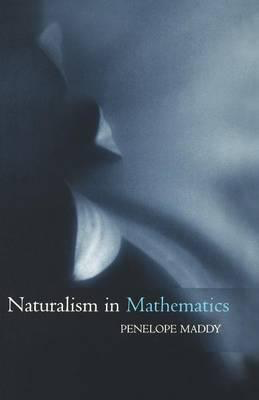
As I mentioned in response to your first question, Naturalism in Mathematicswas the first book that got me interested in the topics I’m interested in today. I don’t believe that Maddy’s position works anymore, but I am still very impressed by this book.
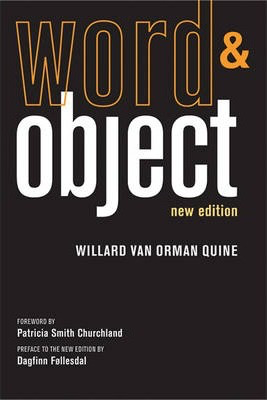
People sometimes ask me what text they ought to read to get an overview of Quine’s philosophy (or to teach Quine’s views to students). Most people recommend “Epistemology Naturalized” or “Two Dogmas of Empiricism”. These are classics, of course, but I still think it is better to read (parts of) Word and Object. It is more nuanced than “Epistemology Naturalized” (which, as I have argued, is a bit confused) and it is more sophisticated than “Two Dogmas of Empiricism”, which was written before Quine had adopted a fully naturalistic perspective. It can be a difficult book but I think it is really worth the investment. Although Quine has written many books after Word and Object, books, also, which correct some fundamental mistakes in his earlier work, it remains his magnum opus.
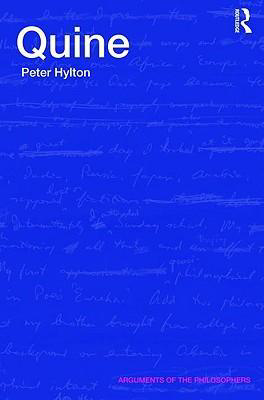
If you prefer to start with a comprehensive introduction to Quine’s philosophy, I would recommend Peter Hylton’s Quine. Hylton’s book is magnificent; it helped me a lot when I first started studying Quine’s primary texts about a decade ago.
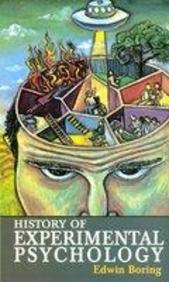
I am currently working on the reception of logical empiricism in the U.S. in the early 1930s (as I mentioned earlier). One of the most delightful experiences has been to read the first edition of E. G. Boring’s A History of Experimental Psychology. Although the work has its limitations as a history of psychology, it is a great source of how psychologists viewed their discipline and its relation to philosophy in the late 1920s.
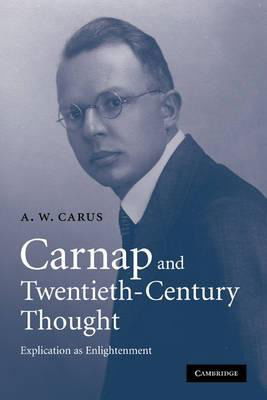
Finally, one of my favorite philosophical books more generally is A. W. Carus’ Carnap and Twentieth-Century Thought: Explication as Enlightenment. This is an outstanding book because it combines a minute reconstruction of Carnap’s development with a broad analysis of the cultural context in which he worked. I can only hope that I will ever be able to write a book like that.
ABOUT THE INTERVIEWER
Richard Marshall is biding his time.
Buy his new book here or his first book here to keep him biding!
End TimesSeries: the first 302